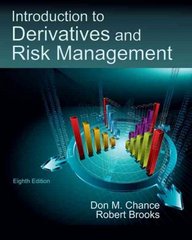Question
Nov 3rd 2020 HONG KONG AND SHANGHAI Jack Ma was in a triumphant mood shortly after Ant Group, his Chinese fintech firm, priced its initial
Nov 3rd 2020 HONG KONG AND SHANGHAI
Jack Ma was in a triumphant mood shortly after Ant Group, his Chinese fintech firm, priced its initial public offeringset to be the worlds biggest ever, with almost $40bn worth of shares sold. Speaking at a summit in Shanghai on October 24th, he chided regulators for being too focused on preventing financial risks. Red tape, he said, only held up innovation. Ten days later his words came back to haunt him. Less than 48 hours before its stock was to
begin trading in Hong Kong and Shanghai, Ant was forced by Chinese regulators to halt the flotation.
The group said in a regulatory notice to the Hong Kong exchange that the IPO, scheduled for November 5th, had been suspended because the company may not meet listing qualifications or disclosure requirements, after the regulator conducted an interview with Mr Ma and other executives. The filings also mentioned recent changes in the fintech regulatory environment, hinting that newly published rules may have got in the way. The sudden suspension also suggests that some powerful officials may be displeased with Mr Ma, a self-made man who, by the conservative standards of big business in China, has an outspoken streak.
Yet the turn of events is not just painful for Ant. It reflects poorly on Chinas regulators. IPOs are rarely stopped at such a late stage. The deal was more than 800 times oversubscribed in Shanghai, and in Hong Kong last week the firm closed its book a day early. It was set to float in Shanghai on the star market, Chinas answer to Nasdaq, designed to lure home Chinese tech groups that have listed abroad. Instead, the last-minute halt of Ants listing highlights the opacity of the Chinese political system and the risks that can trip up even its most successful companies.
It is also easily the most public, and most disruptive, of Ants run-ins with regulators. The company has consistently adjusted its business as the rules around it have shifted. The IPO debacle appears to be partly related to one such case. Back in 2018 officials placed caps on asset-backed securitisation, upending Ants model of selling its loans on to banks. So it pioneered a new approach: consumers and merchants borrowed through Alipay, its payments service, on their smartphones, but the money came from banks. Ant was simply the conduit, collecting a technology-service fee. This conduit business boomed, with credit growing to outstrip payments as Ants biggest source of revenue.
On November 2nd the Chinese central bank and banking regulator published new draft rules for online micro-lending, which looked almost perfectly tailored to undercut Ant. Online lenders will need to fund at least 30% of any loan they supply jointly with banks. That could force Ant to keep much more of the credit that it originates on its books; currently, 98% is held as assets by other firms, off Ants balance-sheet. Additional disclosure requirements could also make it much more cumbersome for banks to partner with the group. Officials at Chinas banking regulator have already pressed commercial lenders to adhere to the new rules, according to Bloomberg, in effect making many of Ants transactions non-compliant.
Depending on how the rules are implementedthey will not be finalised until DecemberAnts capital-light model could end up looking much less sleek. It will be valued more like a financial firm than a tech firm, said a strategist with an Asian sovereign-wealth fund. Given Ants track record, it seems a fair bet that it will quickly adapt to the new rules, but its credit operations are likely to face much slower growth and lower profitability.
Investors had previously given Ant a forward price-to-earnings multiple of 40, in line with big global payments companies. Most Chinese banks, in contrast, trade on multiples of less than ten. Ant had been on track for a market capitalisation north of $300bn, higher than any bank in the world. Now it is likely to fall well short of that. Shares in Alibaba, a Chinese e-commerce giant that owns a third of Ant, tumbled by 8% after the suspension of the listing was announced.
1- Assume you are an expert at the Capital Markets Board of Turkey. Would you approve the prospectus for the ANTs IPO, based on the material in the above articles? If yes on what grounds? If no, for what reason? If you have any doubts for approving or not approving, what other information would you require? How would you use that additional information?
2- Would you think that the securitization business that ANT operates would affect your decision making in approving or not approving the prospectus as an expert at the Capital Markets Board?
Step by Step Solution
There are 3 Steps involved in it
Step: 1

Get Instant Access to Expert-Tailored Solutions
See step-by-step solutions with expert insights and AI powered tools for academic success
Step: 2

Step: 3

Ace Your Homework with AI
Get the answers you need in no time with our AI-driven, step-by-step assistance
Get Started


